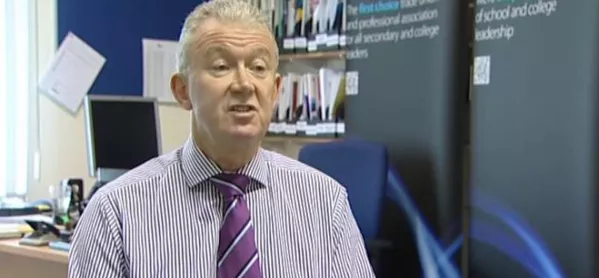Today’s ASCL Annual Conference opens with a call for greater investment in education. This is badly needed across the system, but nowhere more so than in the post-16 sector, which is woefully underfunded.
A report by the Institute for Fiscal Studies says that 16-19 education spending fell by 14 per cent in real terms over the last parliament. Sixth forms and colleges receive a base rate of £4,000 per student, compared with an average of about £4,700 per student in pre-16 education.
This funding gap is, of course, huge when applied across an entire institution, leaving sixth forms and colleges with hundreds of thousands of pounds less to teach their students.
The only good news is that a widely anticipated further cut to post-16 education in last autumn’s spending review did not materialise, and core funding was protected at its current level.
However - just as in the case of pre-16 education - this is, in fact, a real-terms cut because of significant extra costs, such as employer pension and National Insurance payments, which must be found from existing budgets.
While those in the sector are acutely aware of the seriousness of the situation, the scale of the crisis does not appear to have broken into public consciousness. Very quietly, post-16 education is being turned into a Cinderella service; the most poorly funded part of the system.
Many sixth forms and colleges have had to reduce course options for students because they can no longer afford the staff. This means that subject choice is being increasingly whittled down, providing a narrower, less rich and less varied curriculum.
This trend could be seen in last year’s A-level entry, with a declining number of candidates taking subjects such as music, German and design and technology, which suggests fewer institutions are able to offer these courses.
‘Closures on the horizon’
It is highly likely that over the next few years some colleges and smaller sixth forms will have to close. Indeed, it is the government’s stated aim that its ongoing area reviews of sixth form and further education colleges will result in “fewer, larger, more resilient and efficient providers”.
While this may make for greater efficiency, it is likely that parents and students will be extremely unhappy to find that their local college has had to merge or close. Young people may find that they have very much less choice and very much longer journeys.
The new national school funding formula will make no difference to the situation in post-16 education, as it applies only to the pre-16 sector. Ironically, funding for 16-19-year-olds is already equitably distributed, albeit that it is universally inadequate.
Is this really what the country wants for post-16 education? It is an absolutely crucial period in which young people will take some of the most important examinations in their lives. It is the gateway to university courses and apprenticeships and sets students on a path for their careers. It should be able to offer a full, varied and rich curriculum.
There is a danger that choice will be eroded to the point at which post-16 institutions are able to offer only “facilitating” subjects - such as maths, English and the sciences - and a few other large-entry courses. These are, of course, extremely important subjects, but we also need musicians, artists and designers, not least because the creative industries are so vital to the British economy.
We recognise, of course, that these are tough times, but let us not forget either that Britain has one of the largest economies in the world. The country can afford to spend more on the education system and it needs to do so.
Young people really are the future of our nation and their education is the investment which secures that future.
Malcolm Trobe is interim general secretary of the Association of School and College Leaders
Want to keep up with the latest education news and opinion? Follow TES on Twitter and like TES on Facebook




